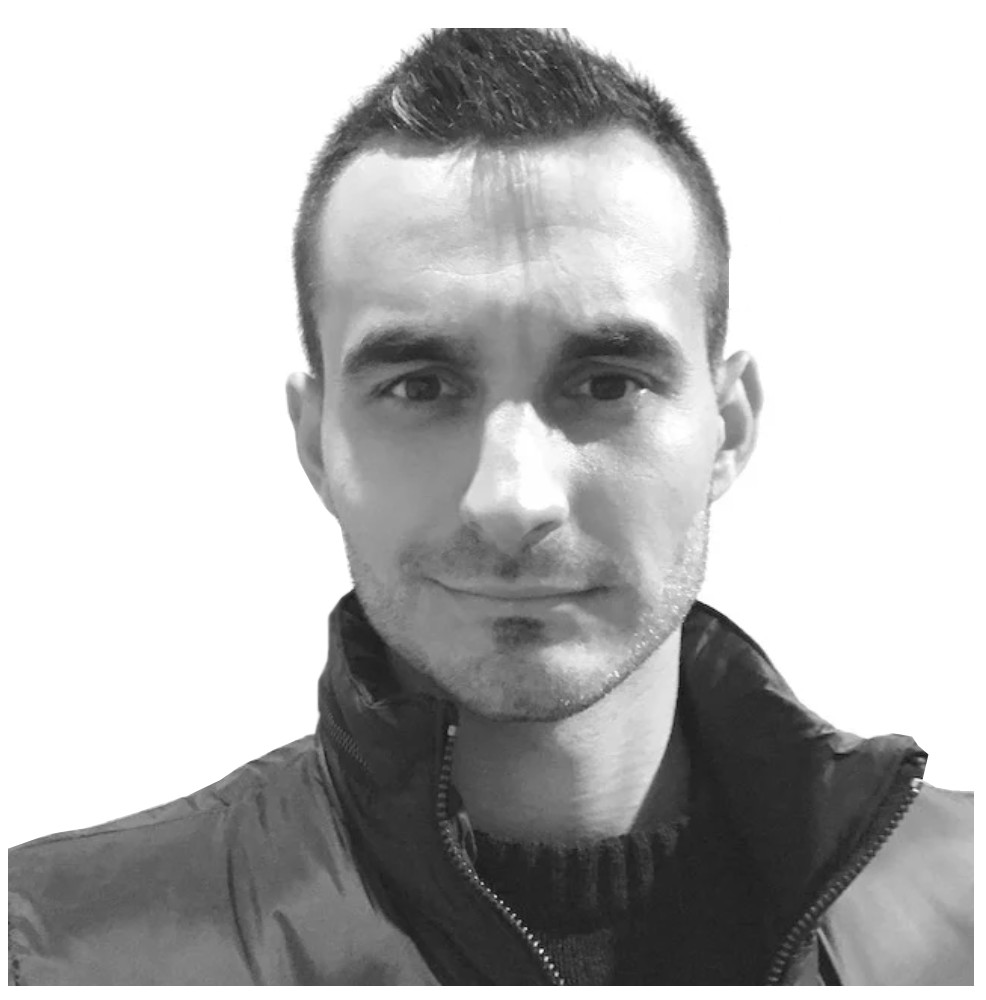Please note: this article should not be interpreted as medical advice. Seek professional or medical help immediately if you are experiencing a mental health crisis.
This article was originally published on nickhatter.com
The curse of anxiety and depression
“Symptoms of depression and feelings of insecurity, inferiority and fear of failure are the hallmarks of our late modern achievement society”
- Byung-Chul Han
Anxiety and depression are horrible things to have. But what if simply by adjusting our focus could help reduce or even cure anxiety or depression?
As someone who has suffered with both anxiety and depression, if you experience either, my heart goes out to you. They are both nasty and sometimes extremely debilitating conditions.
As a matter of fact, I once suffered from crippling ‘Death Anxiety’ – knowing that I could not escape death filled me with terror and doom, to the point where I was having panic attacks.
As a survivor of much suffering and trauma, life as an adult sometimes felt pointless for me. Is this all there is? Is life just suffering? Such feelings I call “Existential Despair” or “Existential Depression”. When it hit me, all I wanted to do was act out on my addictions to escape the despair.
Imposter Syndrome
I also admittedly suffered from “Imposter Syndrome” – feeling like a fraud which could really affect my confidence in my ability to be an effective life coach at times.
I have done several coaching trainings and courses, including psychodynamics, the Enneagram and Neuro-linguistic Programming (NLP). I also have rich life experience including nearly 4+ years of service in addiction recovery as well as building a £1.7M company, and have spent several years receiving coaching and psychotherapy for myself.
In addition, I have close to 40 five-star client reviews on Google, and have been consulted as an expert on life coaching for Forbes, Vogue, AskMen, The Guardian, The Huffington Post, national TV and radio.
Yet, I still felt like a fraud and not good enough, and feared “being found out”. Why?
A Spiritual Epiphany
After much praying about my anxieties and fears, I had a spiritual epiphany which rocked my world:
My anxiety around my work and death is caused by my self-centered thinking.
People die every day. Approximately 105 people die each minute – or 2 people per second. Yet, that doesn’t seem to bother me anywhere near as much as thinking about my death.
How self-centered and self-absorbed of me!
Furthermore, my fears around my reputation and my work revolved around me.
Me, me, me.
Self-centeredness creates more anxiety
What happens if we focus on the self too much? We develop self-obsessed fears:
- “What do people think about me?”
- “What will happen to me?”
- “I am not good enough”
Let’s call this way of being selfish-mode.
In this way of self-centered being and thinking, mostly everything we do will be done for our ego – more achievements, titles, qualifications, more external validation.
The problem of this way of being:
- We will never get enough external validation to be content
- At some point, we have to die and leave these extrinsic things behind
Self-centeredness creates more depression
Whilst there may be a medically defined definition of it, depression for me is synonymous with a few things:
- Hopelessness
- Meaningless
- Numbing out
My view is that it comes from when we do not feel like there is hope, or there is reason to continue living, or that reality is so intolerable that it’s better to simply numb out or not show up at all to life.
This explains why people who are severely depressed sleep too much or do not get out of bed – they do not have a desire to show up to life.
When one has suffered considerably, one may feel like asking: “Why should I go on? There is no point.”
When only living for one’s self and life gets challenging, it can make us go into a place of:
- “Why is life so hard on me”
- “My life is pointless”
- “So much suffering has happened to me”
The Spiritual Solution
The solution is to centre our lives and decisions around something larger than ourselves. This “something larger” can be called a number of things:
- Higher Power
- Higher Purpose
- God
By doing so, we take the focus off our ego (which can never be fully satiated) and start to take a more global view of life and others.
Let’s call this way of being Service Mode, where we think and behave in a way that goes beyond what the ego wants – which is prestige, power, validation and escaping death.
We may ask questions such as:
- Who can be served today?
- What’s the right thing that needs to be done?
- What is the higher purpose that needs to be fulfilled?
Why it works for anxiety
By connecting to something larger than ourselves, we are relieved from the bondage of self and all of our self-obsessed fears and neuroses. When we think beyond our self-centered ego, we start to feel relief.
Service-mode thinking shrinks the ego down because the ego is no longer at the centre of attention.
Imagine for a moment:
- What if you stopped worrying about you being successful, attractive or rich enough?
- What if you stopped worrying about your death?
- How liberating would this be?
I am not saying one should not strive to improve one’s self, however, one must consider the motivation.
Ego-based endeavours are rarely satiating for long, and often need to be replaced with an even more ego-based endeavour. This can leave us feeling exhausted, depleted and empty in the end.
Why it works for depression
By connecting to a mission larger than ourselves, our lives are given purpose and meaning despite suffering, and we are relieved from the ego’s never-ending desires.
Without purpose and meaning, humanity is doomed to fall into existential despair and depression.
In his book, “Man’s Search for Meaning”, the prominent psychiatrist Dr. Viktor Frankl explained how in concentration camps, those who survived were those who could find meaning in their suffering.
As a concentration camp survivor, who endured slave labour, beatings, malnutrition and lost several family members to the holocaust (including his wife), no one is more qualified to speak on adversity and suffering than Frankl.
Frankl reported that those who had lost meaning of their suffering lost their will to live and died quickly. In fact, it was often predicted who would die next as inmates would refuse to get out of bed, or they would smoke their last cigarette (which could’ve been traded for rations that would’ve kept them alive).
He came to the conclusion that there is meaning even in suffering is the key to overcoming adversity.
Thus, if one can connect to a mission greater than themselves, they can survive anything, as this gives their suffering meaning.
Nelson Mandela was imprisoned for 27 years and could easily have given up – but he did not. Why? Because he had a mission and a purpose greater than himself.
Jungian Psychology and Philosophy
The way to liberation is to stop focusing so much on the self, and start focusing on and serving a higher power that is greater than you.
This concept underpins all 12-Step Addiction Recovery Programmes, such as Alcoholics Anonymous, Workaholics Anonymous, Sex Addicts Anonymous, et al. As Step 3 goes: “We became willing to turn our will and our lives over to care of God as we understood God”
Connecting to a higher power (or God) helps relieve the obsession and self-centeredness that often accompanies addiction.
The prominent psychoanalyst Carl Jung once said:
“[People] seek position, marriage, reputation, outward success of money, and remain unhappy and neurotic even when they have attained what they were seeking. Such people are usually confined within too narrow a spiritual horizon. Their life has not sufficient content, sufficient meaning.”
“If they are enabled to develop into more spacious personalities, the neurosis generally disappears.”
In other words, what Jung was saying summarises the above: by expanding ourselves through greater consciousness, one beyond the confines of our ego, we will become less neurotic.
Conclusion
To reduce anxiety and depression, we must begin to connect to something greater than ourselves, and begin a service-oriented life around this greater virture. This could be a life that focuses on serving others, God, or a higher mission or calling.
The alternative is to stay in our ego-centered life of “not enoughness” – not enough money, prestige, achievements, qualifications, property, sex. We stay stuck on the hedonistic treadmill of life and burn ourselves out, only at the end of it all to wonder: what was it all for?
One of the saddest things is that according to Palliative Nurse, Bronnie Ware, one of the most common dying regrets of people is: “I wish I hadn’t worked so hard”.
And yet despite this, many of us today, are working hard, abandoning self-care, health, loved ones and maybe even our morals, all in the pursuit of success.
Meanwhile, we constantly compare ourselves (who may already feel not good enough) to other’s idealised self-images on the likes of Facebook and Instagram, who appear to be living the dream.
Is it any wonder we are more anxious and depressed than ever?
As a society, we are long overdue an overhaul of our motivations for our actions.
Read more great content like this on Nick Hatter’s life coaching website.


